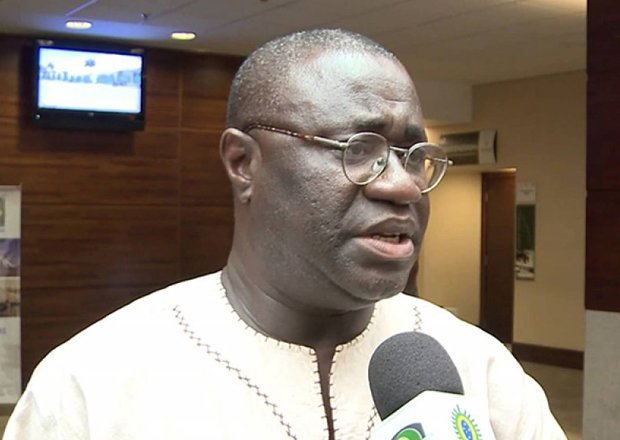Security analyst, Prof. Emmanuel Kwesi Aning, has described Ghana as a ‘GalamState,’ attributing the country’s failure to combat illegal mining, known locally as galamsey, to the inability of state actors to effectively clamp down on the activity.
Speaking at a CSO post-engagement with political parties on mining in Aburi, Prof. Aning likened the situation to “crime convergence,” where a lack of trust in security agencies and weak laws have emboldened many to engage in illegal practices with impunity.
“Ghana has now been characterised as a ‘GalamState’. ‘GalamState’ is a state that is captured and linked to a higher force of grand corruption. In a ‘GalamState’, the practice is normalized, and the people are silenced or limited to mere noises on the sidelines,” Prof. Aning said.
He added, “In a ‘GalamState’, there is a perfect blend between criminally minded politicians and politically minded criminal gangs, creating a hybrid form of governance. In such a scenario, the traditional rule of the state to arrest, investigate, prosecute, adjudicate cases of accused persons, and incarcerate or fine them, which are key ingredients to the state’s resilience, are not present.”
Prof. Aning further warned that Ghana has reached a stage where the consolidation of the ‘GalamState’ could lead to the formation of ‘mafia’ criminal gangs.
“The crimes and collusion are so intertwined. To stop galamsey, we need to look at multiple other institutions that make these crimes possible and where there are embedded individual and group interests.”
The destructive impact of illegal mining has left major rivers like the Bonsa in the Western Region and the Pra in the Ashanti Region heavily polluted with toxic chemicals. Forest reserves such as the Tano Nimiri in the Western North Region and the Draw River in the Western Region have also been devastated by the environmental effects of galamsey activities.
In response to these growing concerns, civil society groups and the Trades Union Congress have called on President Akufo-Addo to impose a ban on illegal mining and declare a state of emergency in affected areas. Environmental organizations, including A Rocha Ghana and six other civil society groups, have taken legal action against the government for allowing illegal mining in forest reserves.
The coalition, which includes Kasa Ghana, Eco-Conscious Citizens, Tropenbos, the Nature and Development Foundation, Civic Response, and the Media Coalition Against Galamsey, has pointed to the 2022 Legislative Instrument (LI) 2462, which permits mining in forest reserves, as a major contributor to environmental destruction and a threat to the livelihoods of many Ghanaians.

